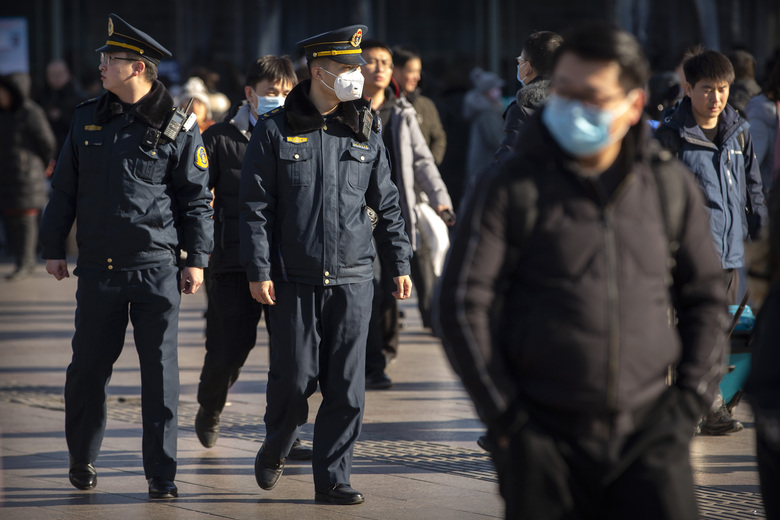It is not surprising, but troublesome nonetheless, to read on social media and hear in conversations the rumblings of the blame game. “This is China’s fault and China must pay.” We hear people complaining about the leaders of communist China being liars and thieves and there are reports of Asian people being bullied, mocked and attacked.
When something goes wrong–disastrously wrong it is human nature to ask who is at fault. It’s natural to blame someone else for the problem, and very often someone else is to blame for the problem. Somebody messed up. Either intentionally or innocently they got it wrong–big time. If someone is to blame for a problem and they can help to fix it, then finding 0ut who is to blame and working with them to put it right is perfectly okay.
However, if the blame game is about scapegoating–assigning blame to another person, another race, another nationality or religious group–without real evidence and because if a visceral instinct to blame and seek revenge, then we’re on a very bad path. Finding someone else to blame and then attacking that person is the age old cycle of resentment, rivalry and revenge which ends in bloodshed and never really solves the problem. It only makes it worse.
Are the Chinese to blame for the coronavirus? From what we can gather they did not respond rapidly enough. They did not put safeguards in place. They were in denial, but aren’t we guilty of the same mistakes? Our leaders also denied the seriousness of the pandemic. I did. Didn’t you? It’s natural to deny, then it’s natural to cover up when things get out of hand. While we don’t make excuses for these actions we can all recognize them as natural reactions when faced with an overwhelming problem. Did the Chinese manipulate the information, spread false numbers, try to make things look good? Maybe they did. Probably we did too.
The point I’m trying to make is that the blame game is not only dangerous because it can lead to real violence and even war, but it also doesn’t accomplish anything. It only makes things worse.
When our kids were learning to drive most of them, sooner or later got into a scrape. They bumped another car. They blasted over a pothole and ripped out their front suspension, they cut a corner and blew a tire. They’d come home scared to report the news, and sometimes they’d try to shift the blame.
My response? I asked them if they did it on purpose.
“Of course not!”
“But maybe you could have been more careful and will learn to be a better driver next time?”
“I’ll try.”
“OK. Well, let’s not worry about it too much, let’s just solve the problem. So I’d help them call the insurance company teach them how to deal with a car problem, help get the car fixed and back on the road.”
This is what we do when there’s a problem. Life’s too short to engage in the blame game.
But we still fall into the trap. We fall into the blame game because it feels good. Blaming others makes us feel superior. Blaming others means we don’t have to take responsibility.
Furthermore, when I hear someone indulging in the blame game it is right to say, “Uh huh. And what are you going to do about that?” Nine times out of ten the person doing the blaming can’t actually do anything about it even if the other party IS to blame. It’s the same mentality as the conspiracy theory nut. They blame some other person or country or racial group or religion or ethnic group for a problem, but they can’t and won’t actually do anything about the problem themselves. All the blame game does is make them feel good because they’re so much better than those big baddies who caused the problem.
This is a very sick and sad mentality which, if unchecked, will end in violence. Why violence? Because when one asks, “What are you going to do about it?” The blamer can only do one of two things: realize he is impotent and can’t do anything about it or else (if he has the power) seek to take revenge on the “guilty” party, and what for does the revenge take? Some form of violence.
This Holy Week we see the Jewish leaders falling into the classic blame trap. Jesus steps up and says, “You want to blame somebody? Blame me.” In doing so he blames nobody –note this: even though they were supremely blameworthy and guilty! He doesn’t blame. He takes the blame.
This is what revolutionized human history. For the first time people who decided to be disciples of Jesus Christ said, “We’re not doing the blame thing. Even if somebody else is guilty, we’re going to take our part of the blame. We’re going to take responsibility. We’re going to pick up our trash and more than that, we’re going to pick up other people’s trash.
So is China to blame for the coronavirus? At this point does it matter so much? Does getting on to a blame treadmill do any good?
Let’s be grown up and simply roll up our sleeves, do what we can and work together to get through this crisis to the other side.







Leave A Comment
You must be logged in to post a comment.